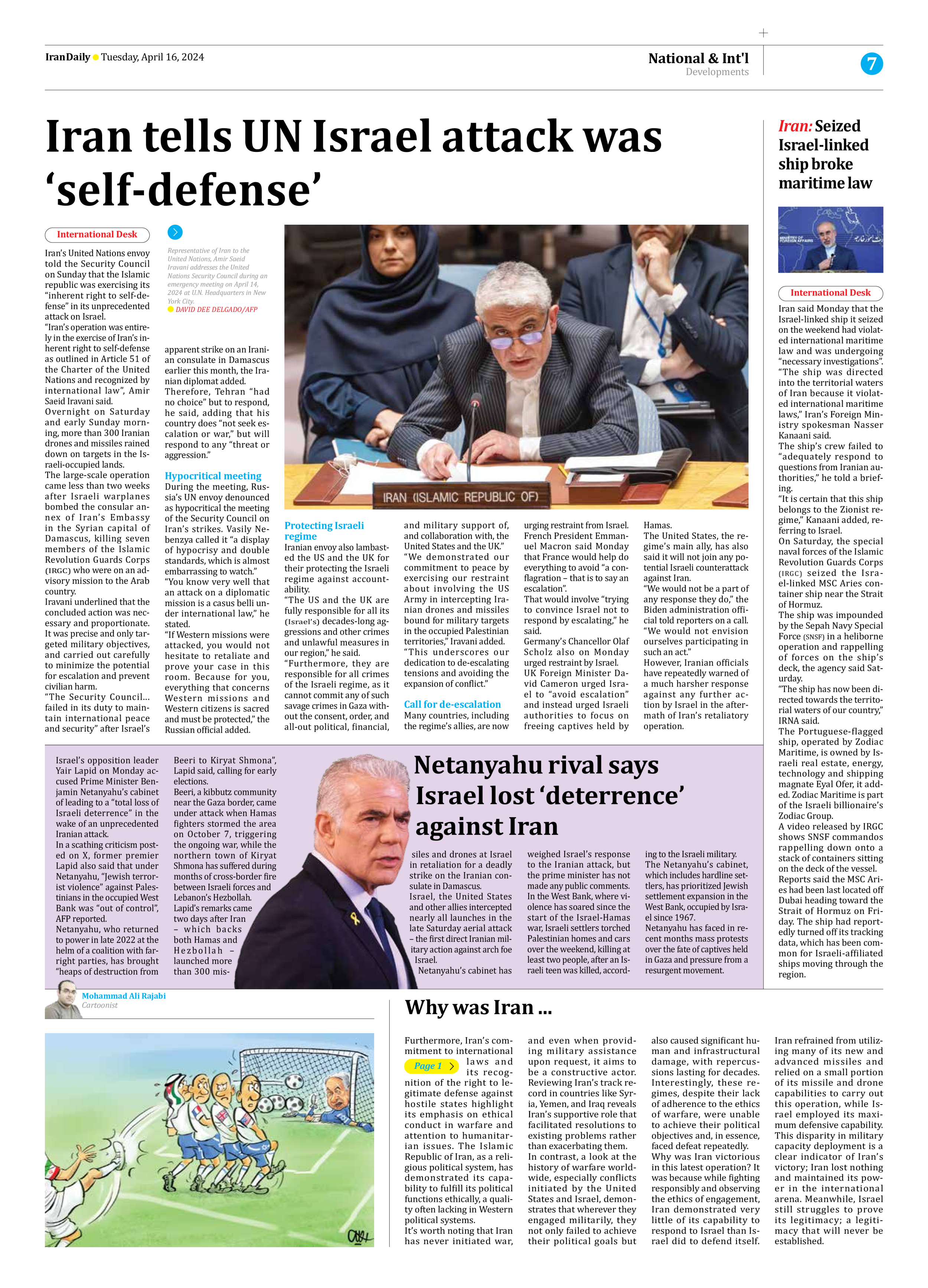
Why was Iran ...
Page 1
Furthermore, Iran’s commitment to international laws and its recognition of the right to legitimate defense against hostile states highlight its emphasis on ethical conduct in warfare and attention to humanitarian issues. The Islamic Republic of Iran, as a religious political system, has demonstrated its capability to fulfill its political functions ethically, a quality often lacking in Western political systems.
It’s worth noting that Iran has never initiated war, and even when providing military assistance upon request, it aims to be a constructive actor. Reviewing Iran’s track record in countries like Syria, Yemen, and Iraq reveals Iran’s supportive role that facilitated resolutions to existing problems rather than exacerbating them.
In contrast, a look at the history of warfare worldwide, especially conflicts initiated by the United States and Israel, demonstrates that wherever they engaged militarily, they not only failed to achieve their political goals but also caused significant human and infrastructural damage, with repercussions lasting for decades. Interestingly, these regimes, despite their lack of adherence to the ethics of warfare, were unable to achieve their political objectives and, in essence, faced defeat repeatedly.
Why was Iran victorious in this latest operation? It was because while fighting responsibly and observing the ethics of engagement, Iran demonstrated very little of its capability to respond to Israel than Israel did to defend itself. Iran refrained from utilizing many of its new and advanced missiles and relied on a small portion of its missile and drone capabilities to carry out this operation, while Israel employed its maximum defensive capability. This disparity in military capacity deployment is a clear indicator of Iran’s victory; Iran lost nothing and maintained its power in the international arena. Meanwhile, Israel still struggles to prove its legitimacy; a legitimacy that will never be
established.







